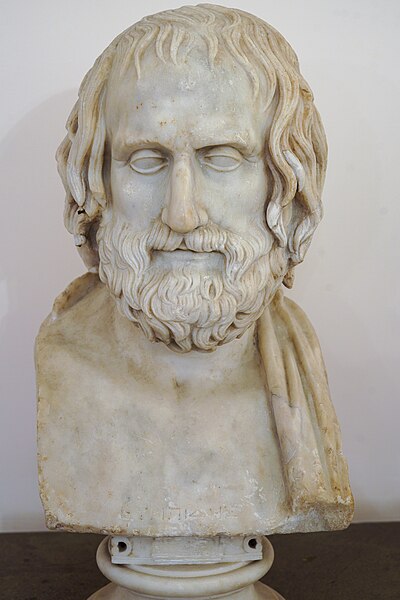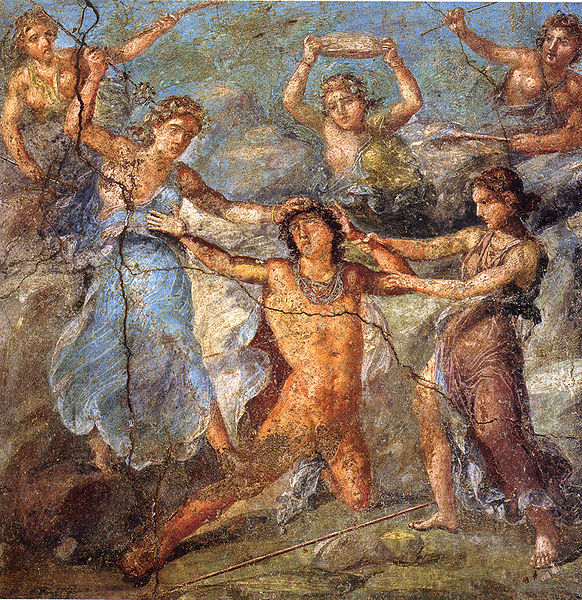The Trojan Women, also translated as The Women of Troy, and also known by its transliterated Greek title Troades, is a tragedy by the Greek playwright Euripides. Produced in 415 BC during the Peloponnesian War, it is often considered a commentary on the capture of the Aegean island of Melos and the subsequent slaughter and subjugation of its populace by the Athenians earlier that year (see History of Milos). 415 BC was also the year of the scandalous desecration of the hermai and the launch of the Athenians' second expedition to Sicily, events which may also have influenced the author.
An engraving of the death of Astyanax
Willow Hale (Hecuba) and Sterling Wolfe (Talthybius) in The Trojan Women, directed by Brad Mays at the ARK Theatre Company (2003)
Euripides was a tragedian of classical Athens. Along with Aeschylus and Sophocles, he is one of the three ancient Greek tragedians for whom any plays have survived in full. Some ancient scholars attributed ninety-five plays to him, but the Suda says it was ninety-two at most. Of these, eighteen or nineteen have survived more or less complete. There are many fragments of most of his other plays. More of his plays have survived intact than those of Aeschylus and Sophocles together, partly because his popularity grew as theirs declined—he became, in the Hellenistic Age, a cornerstone of ancient literary education, along with Homer, Demosthenes, and Menander.
Bust of Euripides
2nd century AD statue of Euripides, Louvre, Paris
19th century statue of Euripides in a niche on the Semperoper, Germany
Ancient Roman wall painting from House of the Vettii in Pompeii, showing the death of Pentheus, as portrayed in Euripides's Bacchae






